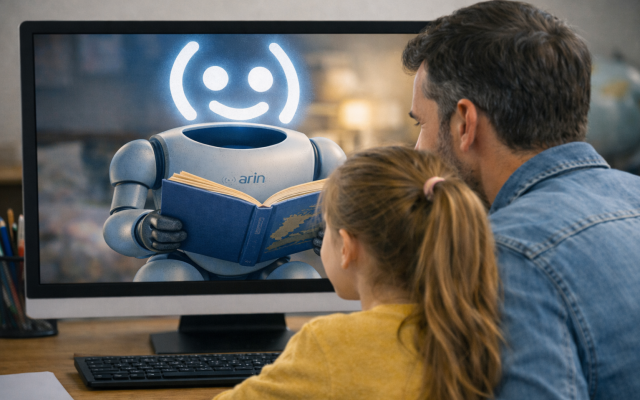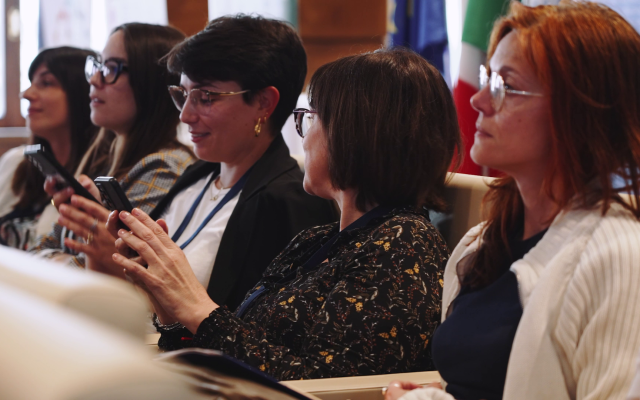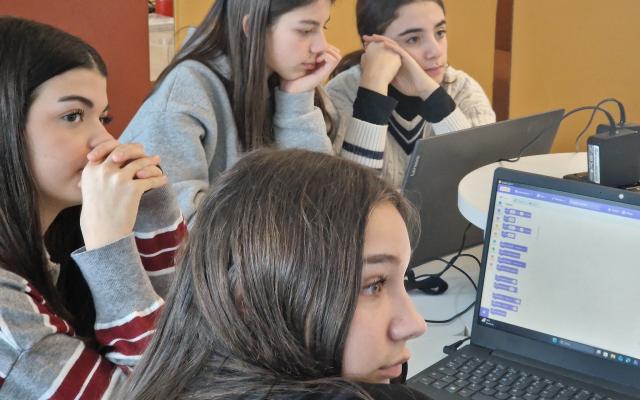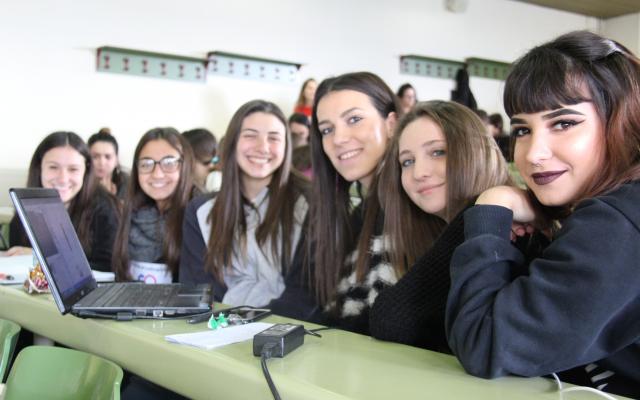The final event of the Coding Girls 2025 tour takes place in Milan, in collaboration with Job Digital Lab
In the 19th century, Ada Lovelace imagined a machine capable of executing algorithms, laying the foundations for modern programming. Florence Nightingale, a pioneer in nursing, used statistics to improve health conditions during the Crimean War. Katherine Johnson calculated the trajectories that took man to the moon. Margaret Hamilton developed the software that made the Apollo 11 moon landing possible.
These women, who transformed the world, have something in common, and it is not their gender. It is their ability to read data. To recognise a story, a direction, a possibility in numbers.
Yet, even today, data seems to suffer from a prejudice: perceived as dry, cold, reserved for those who “have a head for numbers”, it carries with it the reputation of being a difficult and boring subject. This label risks excluding precisely those who could turn it into a tool for change.
Many years later, and despite shining examples, girls continue to choose STEM subjects less than their male peers. But is this really a question of aptitude or the result of deeply rooted prejudices?
When read with awareness, data can become a lever to dispel stereotypes, bring out untapped potential and open the way to new opportunities. These questions gave rise to “Coding Girls and Data Science”, a training and transformative course created in collaboration with the University of Milan, as part of Job Digital Lab, the programme promoted by the Fondazione Mondo Digitale and ING Italia for the dissemination of digital skills.
The final event takes place today, Thursday 29 May, at the University's Department of Computer Science, with the participation of 100 students from five local high schools: Falcone Righi in Corsico (MI); Giorgi in Milan; Oriani-Mazzini in Milan; Marconi in Milan; Carlo Dalla Chiesa in Sesto Calende (Varese). Participants are involved in a Graphaton, a creative and collaborative challenge.
During the morning, teams will work with real datasets disaggregated by gender, taken from BES 2023 data (Indicators of Equitable and Sustainable Wellbeing provided by Istat). Guided by university tutors from the master's degree course in Data Science for Economics, participants analyse gender inequalities and build clear, visually effective and persuasive infographics. The mission: to convince a public decision-maker to take action on a critical issue, with concrete proposals supported by data.
This is not just an exercise in analysis. It is an act of active citizenship: critically reading reality, challenging stereotypes and sparking change.
The programme opens with institutional greetings from Silvana Castano, Vice-Rector for Digital Transition and Artificial Intelligence, University of Milan; Mirta Michilli, Director General of the Fondazione Mondo Digitale; Silvia Colombo, Head of Communication & CSR at ING Italia, and continues with introductory speeches by Lorena Viviano, technologist, Service for the Coordination of Statistical Culture Promotion, Istat, and Silvia Salini, full professor of Statistics, University of Milan. This will be followed by discussions with experts from the worlds of information, business and research, including Anna De Censi, Office of the Equal Opportunities Officer, Municipality of Milan; Arianna Scaglia, graduate student in Sociology and intern in Statistics for Gender Studies, Fulvia Mecatti, professor of Statistics, University of Milan-Bicocca; Karen Nahum, general manager of Area Publishing & Digital, Il Sole 24 Ore; Costanza Ramorino, head of HR, ING Italia; Claudia Tarantola, full professor of Statistics, University of Milan; and Luca Tremolada, founder of InfoData, Il Sole 24 Ore.
A cross-disciplinary jury evaluates the projects based on four criteria: consistency with the challenge, clarity of data, visual impact and persuasiveness. The three finalist teams are awarded prizes before the symbolic closing ceremony with a light lunch at the Botanical Gardens in Città Studi.
With over 15,000 female students involved in more than 30 Italian cities and a network of 33 universities, Coding Girls is now one of the most established projects promoting equal opportunities in technical and scientific disciplines. The synergy with Job Digital Lab and ING Italia has enriched this journey with new tools, languages and alliances, offering young women the opportunity to read the world. And to rewrite it.





